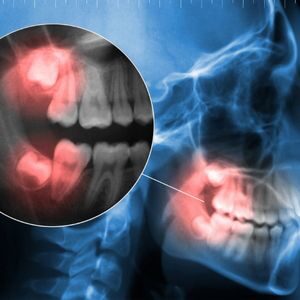Wisdom Teeth Removal
If your wisdom teeth are impacted or have the potential to crowd your teeth, you’ll likely need to have them removed sooner than later. Not only can they cause tender gums, swelling and pain, but partially or fully erupted wisdom teeth are difficult to clean—and that could lead to other oral health problems such as tooth decay, infections and gum disease.
So what’s the next step?
- First, we’ll take a panoramic x-ray to diagnose if your wisdom teeth should be removed.
- Next, your dentist will talk with you about the extraction process and schedule the removal as soon as possible.
We can help manage your dental anxiety with conscious sedation methods and nitrous oxide gas.
How do I know when to remove my wisdom teeth?
According to the American Dental Association, wisdom teeth removal may be necessary if you experience changes in the area of those teeth, such as:
- Pain
- Gum disease
- Repeated infection
- Soft tissue behind the lower last tooth
- Damage to nearby teeth
- Crowding of teeth or not enough space in the mouth
There are times when Wisdom teeth may not need to be removed. Examples of when you do not remove wisdom teeth are:
- Teeth are healthy
- Grown in completely
- Positioned does not impact proper biting issues
- Can to be cleaned during daily hygiene
Have a question? Reach out to us!

